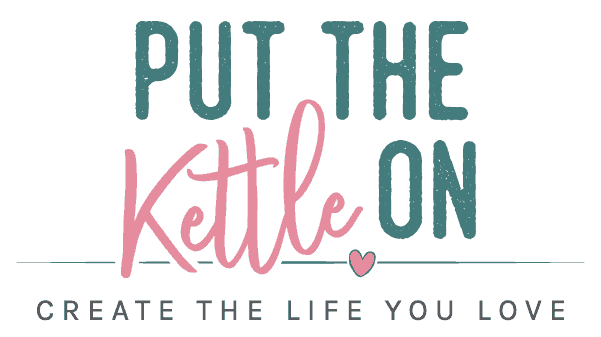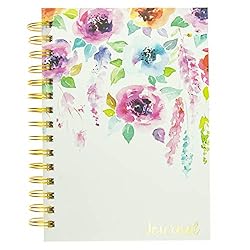5 Types of Journaling for Mental Health
The habit of journaling for mental health has been popular for some time. When you were a kid, you may have written in a journal or diary about your deepest feelings on love, life and friendship.
Journaling has come a long way since then.

There are so many fantastic ways you can put pen to paper these days.
Many of these journaling techniques are also incredible tools for better mental health.
I will therefore be uncovering various types of journaling you can use to improve your emotional and mental well-being.
The Power of Journaling for Mental Health: What are the Benefits?
I mentioned that journaling can be great to better your mental health, but specifically how?
Writing things down can relieve stress and tension as well as bring a level of understanding and insight to a situation.
Journaling for mental health therefore can be an extremely powerful tool.
Here are just a few of the benefits you can expect from journaling:
- Connect with your feelings
- Focus on gratitude
- Stay on top of your daily mood
- Get creative
- Reach your goals
- Reduce stress by letting go of upsetting or negative thoughts
- Focus on positivity
- Record your progress
- Reduce rumination for those who suffer from depression
Why Do Therapists Recommend Journaling for Mental Health?

Many therapists actually use journaling, aka ‘Journal Therapy’ in their practices.
Journaling can be a great tool for people who have a difficult time processing their thoughts. It’s also a wonderful way of focusing on the positive in life.
One of the mental health struggles many deal with today is depression and according to The Doctor Weighs In, journaling helps people with depression…
“Maintain a positive frame of mind, allows them to confront and diminish negative thoughts and emotions, and gives them the opportunity to enhance their sense of well-being.”
–
This post contains affiliate links, meaning I may earn a small commission if you make a purchase through my links, at no extra cost to you. Read my disclosure info for more info.
–
5 Types of Mental Health Journal Ideas
Find out about the different types of journaling so you can choose a writing method that works best for you and your mental health goals.

1. Mood Journaling
Mood journaling is as it states – recording your mood, but there is actually more to it than that.
Specifically, recording your mood at different times throughout the day and connecting that mood to what you were doing at the time (activity) is a powerful process.
You may not realize that what you do, what you don’t do, or who you interact with has a massive impact on your mood in that moment.
The main benefit of mood journaling is you can begin to identify patterns with your moods and activities.
By understanding these patterns gives you more control of your daily mood. It means you can start to make decisions.
You may begin to realize that when you get outside or drink a cup of tea you feel really good. You may also notice that when you sleep in or interact with a certain person you feel upset or guilty.
The main goal with mood journaling: Do more of what makes you happy – what brings you joy. And of course, reduce (where you can) things that are not good for you.
What Kinds of Moods can you Track?
Everything! But more specifically:
- Your good moods (happy, excited, positive, relaxed, playful, etc)
- Your not-so-good moods (angry, depressed, sad, lonely, hurt).
Mood Tracking Journal Recommendation:
Today I Choose Joy: Mood Tracker
Track your mood and activities to improve your emotional health.

A little of what you can expect on the inside of the mood journal…
2. Gratitude Journaling
Recording what you are grateful for on a regular basis can make a huge impact on your life.
If you’ve been having a rough time or find it difficult to be positive, gratitude journaling may be perfect for you.
A typical gratitude journal will give you prompts to record what you are grateful for on a daily basis. By practicing gratitude daily you may realize that you actually have a lot to be grateful for in life.
Tips For Gratitude Journaling:
- Think about simple things in life that bring you joy: The sun, a full fridge, reading a great book, having a loving puppy. Check out this post on simple pleasures for inspiration.
- Focus on things you might take for granted – things other people may deeply desire and wish for in their life.
- When you find gratitude in something, try to focus on how it brings you daily joy or appreciation.
- Focus on people, situations, experiences and things.
Gratitude Journal Recommendations:
This beautiful journal was created by yours truly :
Designed to help you practice gratitude every week of the year, providing you with writing prompts to help you take notice of the positive things in your life.
Includes 52 gratitude writing prompts, quotes, colouring pages and lined pages for independent writing.
Check out the journal here.
Gratitude: A Day and Night Reflection Journal
Cultivate gratitude through the exercise of mindfulness and journaling.
This 90-day journal gives you a path to creating a habit of daily gratitude that you can carry with you throughout your life.
3. Self Love Journaling for Mental Health
To have self-love means to create balance, find positive ways to think about yourself and give yourself permission to grow in meaningful ways.
Learning to practice self-love can be tough for many, so using self-love techniques in journaling can be the perfect way to get started.
Self Love Journal Recommendation:
Love Yourself First Daily Guided Journal
A journal and workbook full of self-love writing prompts to build your confidence and remind you of the beautiful things life has to offer.
A 30-day journal writing challenge to help you see how special you are, experience new ways to feel good and give you time to reflect on the things that matter most.
Includes 30 unique self-love writing prompts, weekly reflection prompts, inspirational quotes and colouring pages, self-love affirmations, self-care ideas and more!
Check out the journal HERE.
4. Anxiety & Stress Release Journaling
There is something to be said about getting all of your stressful thoughts down on paper.
Think of this process as a way to release stress and let it go.
I personally do this when I have a lot on my mind and I feel overwhelmed. I write down absolutely everything that’s worrying me, making me feel anxious or stressed out.
My favourite process for doing this is to NOT have a process! Simply just write. Get it all on paper and then move on.
You’d be amazed at how the weight will lift from your chest so you can get on with your day.
The Benefits of Journaling to Relieve Stress:
- You will actually be able to let stress go.
- You may find a solution to a problem when you write down your stresses. (Tip: After writing down what’s bothering you, see if you can think of a handful of ways to solve the problem).
- Opportunity to challenge your thoughts. Is the stress really that bad? Can you make it easier to deal with by talking to someone for support or tackling a small item on your to-do list?
- It will be easier to move on with your day (even temporarily) by releasing what’s worrying you now.
Tip: I recommend keeping a journal on you at all times so you can use the above method when you need it most.
Recommended Journals for Stress Release Journaling:
Stress release journaling is more of a free-form style, so a lined journal or dotted grid/bullet journal are best to use.
This way you can write anything you like, in any format that suits you.
Check out these beautiful lined and dotted grid journals!
Watercolour Spiral-bound Journal (160 Lined Pages)
Also available in a variety of other patterns and designs.

Colour in the Front of this Pretty Bullet Journal (160 Pages)
Perfect for journaling and colouring!

Pocket Journal/Notebooks – Pack of 5 Assorted Patterns(Lined)

5. Unsent Letter Journaling
Have something you’ve been wanting to tell someone, but you just haven’t been able to do it.
An alternative to talking to the person is to write a letter you don’t plan to send.
Why?
By getting things off your chest can actually help you feel better even if you aren’t talking to a particular person. Just the process of writing out your concerns can be healing.
How to Get Started:
- Write down all the things you need to get off your chest with that person.
- Share your feelings and thoughts towards a situation that may have occurred or about how someone may have treated you.
After you write your unsent letter you can of course choose to talk to the person but note that even if you don’t right away it can help you clarify your feelings.
Unsent Journal Writing Recommendations:
As with stress release journaling, a plain lined notebook works perfectly for this.
Choose a journal/notebook you enjoy writing in. Select a book that feels special but is a functional tool for you.
I enjoy using these hardcover journals that come in a variety of colours.
Paperage Lined Journal (Hardcover, 160 pages)
Loads of vibrant colours to choose from and includes pockets inside.

How to Journal for Mental Health
The above types of journaling for mental health are great ways to get you started, but here are also some tips:
Don’t Hold Back
Remember, that your journal is for you only, so write down your whole feelings. Keep writing and let everything out.
Don’t worry about grammar and spelling, just focus on getting your thoughts and feelings on paper.
Make it a Routine
I personally like journaling first thing in the morning.
When you’re journaling for mental health this is also important as you’ll find it helps you start the day on a positive note (since you’ve released your worries onto paper).
End on a Positive
Always end your journaling sessions with some positive thoughts.
It could be writing one line on what you are grateful for, or something you’re looking forward to.
Journaling for Mental Health: Conclusion
As you can see, the benefits of journaling for better mental health are limitless.
If you haven’t picked up a journal before to write down your thoughts or if it’s been years since you’ve tried, give it a go.
If anything journaling can bring out your creative writing and be a new hobby to discover and this in itself is so good for your mental health.
Have you tried journaling for your mental health?
How has it been beneficial for you and what did you learn about yourself?
Share in the comments below!
Related Resources for Journaling & Mental Health:
- Today I Choose Joy: Mood Tracking for Women
- 30 Self Care Journal Prompts to Improve Mental Health
- 52 Gratitude Journal Prompts to Increase Happiness
- How to Cope with Seasonal Affective Disorder
- 60 Self-Reflection Questions & Journal Prompts
- How to Set and Achieve Your Mental Health Goals

About Yolanda
Website Owner / Content Creator
I’m passionate about helping you live life to the fullest so you can choose to find happiness and purpose. Learn how to CREATE THE LIFE YOU LOVE with intentional living and discovery of the simple things life has to offer. Learn more…












I enjoy prayer journaling. I have a book that I call my War Journal. There I write out everything you listed above including my prayers. It helps me to be specific and get out everything that is on my mind. I also include scriptures that are helpful for each moment.
Hi Tamera – What a great name – ‘War Journal’. Sounds like journaling is a really positive, therapeutic routine for you. Thanks for sharing 🙂
I guess if I have to pick, it would be mood journaling. I get strong urges to journal at times or else I don’t really think about it. People say to journal daily but I treat my journal like a close friend that I don’t see often. We don’t talk often but I trust her a lot. I tell her stuff so I don’t forget – positive or negative.
I love this post! Thank you for sharing! I also share and highly recommend “The 5-Minute Gratitude Journal” on my blog! It’s great! 💕
I love this post so much! I am a huge believer in the power of journaling and I love how have broken it down into the different types. Thanks!
I suffer with mental health issues and I completely agree on journaling. I really enjoyed reading this. Thank you 😊
Hi Christina, I’m happy to hear you found this helpful! Going through mental health struggles can be really tough – so let me first give you a big virtual hug xoxo In regards to journaling, it really is amazing what a powerful tool it can be to improve mental health in a small way. Take care!
I’ve always just journaled when depressed or anxious, never thought of journaling when feeling happy or grateful. But I think it would be very helpful to do so as well!
Journaling helps for all different reasons and it is such a wonderful way to practice gratitude and happy experiences too. Certainly very helpful!
Great post. Journaling has helped me so much with dealing with anxiety and panic attacks. Just writing it down can make such a difference!
Hi Marieke, I’m so glad to hear that journaling has helped you. If anything it definitely helps release anxiety and stress. Take care and I hope you continue to heal from your anxiety xo
I should definitely start journaling again! It’s been years. It’s just so hard to find time for anything.
Hi Nina – Finding time for yourself can definitely be a challenge. How about just 5 minutes in the morning? 5 minutes sounds small but even this amount of time has such wonderful benefits 🙂
I have a gratitude journal and a mood tracker in my bullet journal. They help you to be a more positive person
Hi Irene. They certainly do help with positivity. That’s fantastic you use these tools 🙂
I’m feeling so inspired right now to get back into journaling. I go through phases where I’m REALLY great at maintaining a journal… and then suddenly I just lose momentum and never pick it back up. I definitely need to rectify that, so thanks for sharing this!
Hi Stephanie! Thanks for your feedback! I go through waves with my journaling too. I find that’s where mixing up what you’re journaling about helps keep you stay on track 🙂
I can never find a way to make journaling a habit but I would love to start gratitude journalling.
Hi Nayomi – Gratitude journaling is a great place to start for sure. Even just writing down one thing you’re grateful for every day is fantastic. There are actually journals out there called ‘one line a day journals’. Perfect for anyone starting out 🙂
When I’m upset, journaling is a great way for me to reflect and figure out my next step. I have written many letters and decided that I didn’t need to send them. Just getting it all on paper can be very therapeutic.
Hi Beth, Writing when upset is so helpful. Just getting words down on paper and allowing yourself to release upset or stressful feelings helps so much. I do the same 🙂 Thanks for sharing! Take care.
I have a bunch of pocket journal notebooks! They are my favorite! But I didn’t know that there were so many different types of journaling though!
Hi Jennifer, You sound like me! We both have loads of journals!! It truly is amazing how many journals there are out there. I love that there is something for everyone.
I used to fill journal after journal when I was younger and now I struggle to crack it open a few times a year. I love the anxiety and stress releasing exercise the best.
Hey Sarah! I used to be the same until the last couple of years. Loved journaling as a teen, but I let it go for years. Now I really enjoy the process of putting a few thoughts down every day 🙂
These look like wonderful journals! Thank you for sharing. Mental health is so important and I agree that journaling is so beneficial.
Hi Sacha, Oh I know! There’s something about a fresh, pretty journal that is so inspiring 🙂
Though I have kept a journal since I was in my teens, I have never specifically journaled with mental health as my focus. No doubt, my state of mind has been helped along the way.
Hi Jolayne, Very true. Even if you don’t plan to journal with mental health in mind, it is so therapeutic!
I find journaling so helpful, just the act of opening your notebook on a new day and writing thoughts down can help.
Hi Freya, I love your perspective on journaling! Wonderful way to think about it 🙂